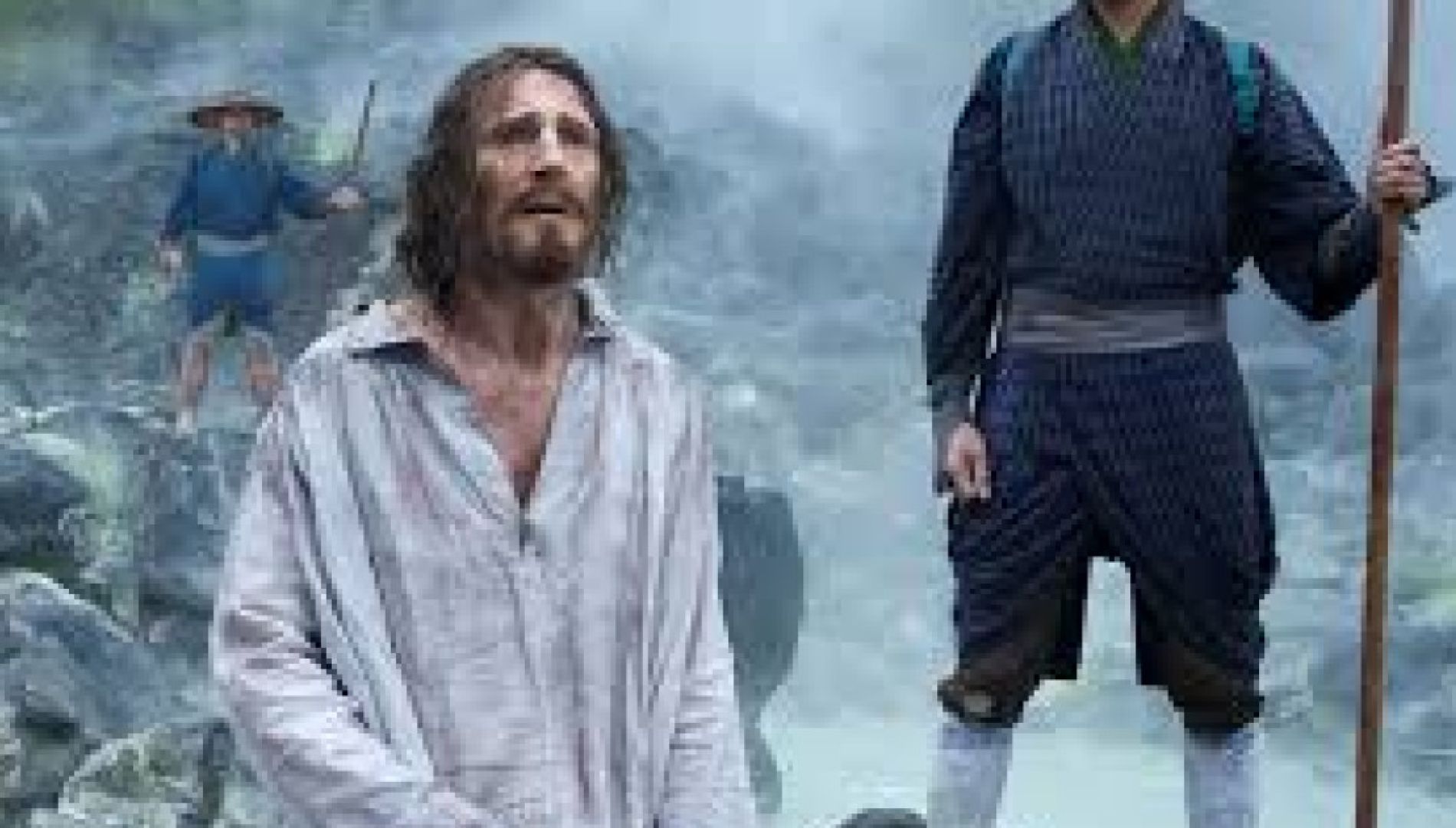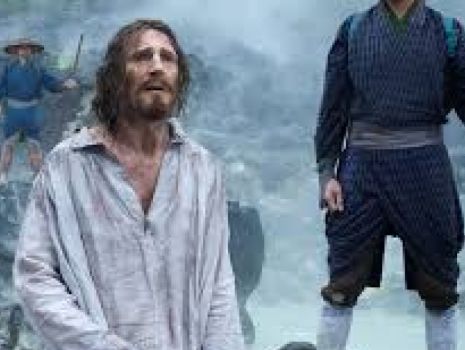Wrestling with a Silent God

Father Rey is a writer, a coach and professional English Tutor. He has writeen several short stories, film reviews, articles and books in many different languages.

None of us in this life expects to watch our beloved ones die. Neither does Cristovao Ferreira, a Portuguese Jesuit priest who witnesses the horrible torture of his fellow priests and faithful during 17th century Tokugawa Shogunate’ persecution against Japanese Christians. Martin Scorsese, in 161 minutes, brings into a big screen the acclaimed novel of Susako Endo on Japanese Christians martyrdom. The movie faithfully tells the story of Christians who struggle and wrestle with a silent God.
Two Jesuits, Sebastiano Rodriguez and Francesco Garupe set off to find Ferreira reportedly have apostatized. Guided by a Japanese Kichijiro, they manage to arrive in Tomogi village where they unexpectedly find the Kakure Kirishitan or “hidden Christians” scattered in many villages. After serving them for a while, they decide to separately abandon the village as more persecutions happen since their presence. Garupe moves to serve other villages in Hirado Island. Rodrigues decides to find Ferreira in the destroyed Goto Island where he reunites with Kichijiro who later betrays and hands him to the Samurai. Rodrigues is taken and imprisoned with other Japanese converts in Nagasaki.
The dramatic tension of the story is very well described in the inquisitor’s prison of Nagasaki. Rodrigues sees with his own eyes the decapitation of a Christian and other series of horrible tortures of Christian prisoners. His faith is seriously questioned before those tragic sufferings of his Japanese brothers and sisters. Meanwhile he is introduced to Sawano Chuan, to a Nagasaki Shinto priest, who happens to be Ferreira himself. The inquisitor hopes that Ferreira can convince Rodrigues to renounce his faith. However, the conversation turns to be a deep theological debate between the two. Ferreira explains how the Christianity doesn’t take root in Japan as the Japanese Christians have the wrong idea of God. God for Japanese never transcends the realm of human nature. That’s why Saint Francis Xavier refers the word Deus/God to the sun, the everyday reality they can grasp. Ferreira compares this worldview with swamp. As nothing grows on the swamp, so true and authentic Christian faith doesn’t grow.
Rodrigues stays apologetic and says that there was a time when Christianity grew and flourished and that those Christians did not die for nothing. Fereira points out that those persecuted Christians indeed died nothing but for the priest, Rodrigues himself. Here, the apologetic character of our faith is challenged by a kind of realism. A rigid understanding of doctrine of faith, sometimes encouraged by religion as institution not allowing any different interpretations of it, prompts unnecessary martyrdom. Our faith, however, is always characterized as a faith that searches to understand. That character is intelligently inserted in Rodrigues’ agonizing defense against Ferreira’s claim that he heard cries of suffering in the same cell and he acted, “that’s the spirit of darkness disguised as light”. There is no other more tempting thing in the world than the freedom of faith that searches to understand. Our faith
The Silence is not a rebuttal to the historic martyrdom nor rejection of God, but it questions the way God is introduced to different cultures; it questions why such idea of God must let to the sacrifice of innocent people. It questions the missionary approach that sometimes doesn’t eager to be in dialogue with other cultures. It questions the idea of God that is simply imposed by western philosophical or theological view of a God. Ferreira seems to me be in line of Matteo Ricci’s approach to the Chinese. He still embraces the Christianity as his religion though he prefers an unusual way to present it, not as pretentious as Catholic Church used to be in that time. This is clearly described when he says ‘our’ religion, ‘our’ Church, ‘our God’ in the conversation with Rodrigues.
The historical context of Japanese persecution at that time could match that of that of Chinese during Communist revolution. Christianity, once present itself as institution more than a way of life, proxy to western political power become enemy for Chinese state. Yet, Christianity is never banned. There are hidden Christians in China today as there are the patriotic ones too. They inherit such difference due to political wounds in the cold war history. Both suffer from that unnecessary division. Pope Francis is a reminiscent of Ferreira when he decided to leave the excommunications of eight state-appointed bishops. It is time for Catholic Church in China to take root as it is anywhere in the world.
Both Ferreira and later Rodrigues win the battle, the same battle that Jacob has won with God all night by the river of Jabbok (means failure). They renounce their belonging to the Church, but not their faith. Japan, as it is well in the words of Inoue, the inquisitor is a swamp: “Japan is that kind of country. It cannot be helped. The religion of the Kirishitan you brought us has become a strange thing. It’s changed. You were not defeated by me. You were defeated by this swamp of Japan. Swamp, as it happens sometimes to be a quicksand, can kill you when you don’t want to make your body as light as possible and move slowly to escape it. Ferreira and later on Rodrigues were ‘defeated’ because of their long resistance against the Shogunate and the society at that time.
Both finally choose the best part on this intriguing battle, as Jacob in the end discovers blessing from his adversary. They choose to renounce publicly their faith for the peaceful life of the hidden Christians, but still embrace their beloved faith and transform the society from within through their better knowledge of Japanese culture. Ferreira may be still right for us today when he says, “There is something more important than the judgment of the church....you will never do anything more important than this…”, more important than silence that becomes a space for God to speak to us.


